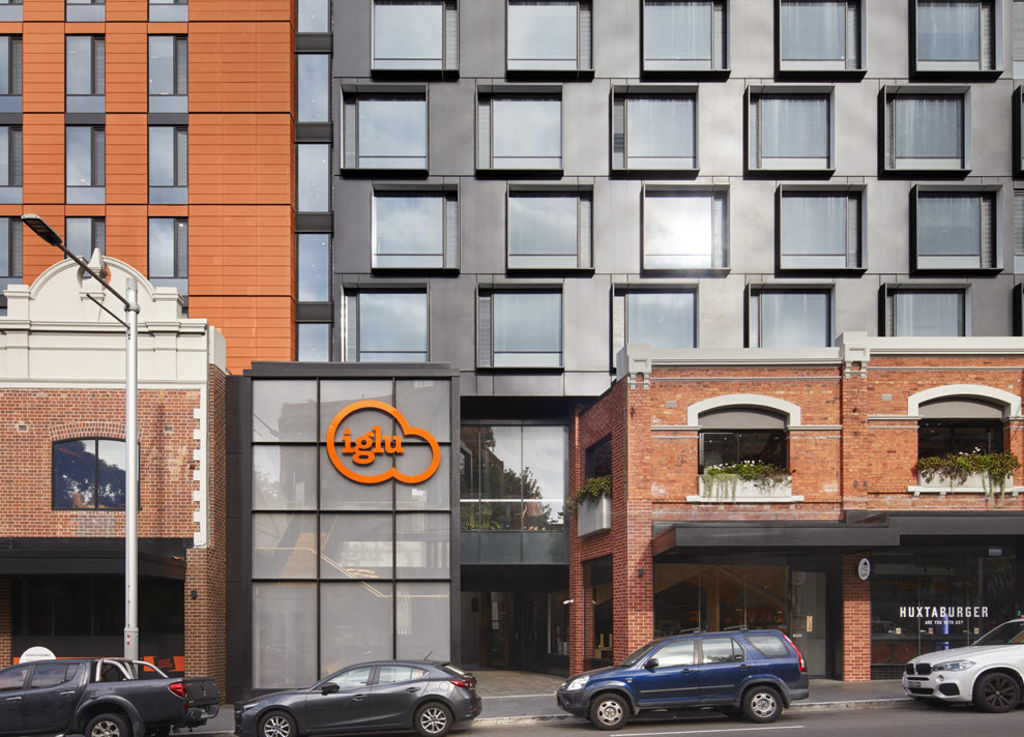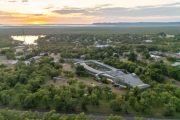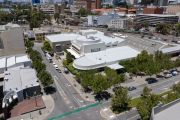
Student accommodation operators seek alternative uses for empty buildings
The operators of empty student accommodation buildings are seeking to repurpose facilities into temporary hotels and rental properties while they desperately wait for international students to return.
The purpose-built student accommodation (PBSA) industry has been plunged into crisis by the closure of Australian borders, shutting out tens of thousands of international students and wiping out an estimated $1 billion in revenue among the major operators in 2020.
The situation is particularly dire for the sector because the use of student accommodation buildings is mandated, making it difficult for operators to find alternative income streams such as housing non-students.
Australia’s largest student accommodation provider, Scape, is among those to lodge planning applications seeking to change the use of some of their buildings temporarily, but with limited success.
Scape Australia chief executive Anouk Darling said that the sector continued to struggle without any certainty of borders reopening to international students.
“In a pre-COVID landscape, average occupancy was around 95-97 per cent,” Ms Darling told Commercial Real Estate. “In our second year of lock-in as a nation … we are now in a position of approximately 10 to 20 per cent occupancy depending on the state and the building.”
“Some of our new state-of-the-art buildings completed this year remained unopened.”
The industry had been growing at an exponential rate before the pandemic struck. There are 109,000 beds in PBSA facilities across Australia, the vast majority of which are found in the capital cities. The sector projects a further 30,000 students will be accommodated in new developments over the next three to five years.
Scape has sought approval from Brisbane City Council to temporarily relax a requirement that all residents in its Brisbane buildings must be full-time students.
“We have identified a cohort of young people who have the same requirements of full-time students, but who are just not studying full time,” Ms Darling said. “Most are either part-time students, or have put their study on hold for the moment, are young professionals wanting affordable all-inclusive accommodation near the city, or are associated with the university or hospital.”
The bid has not been successful, with the council arguing the assets were not suitable for non-students due to the lack of parking.
“We are still working through the change-of-use applications in Brisbane,” Ms Darling said.
Another major provider Iglu, which oversees approximately 4000 beds with a further 2000 in development, has lodged a planning application with the City of Sydney seeking to temporarily permit tourist and visitor accommodation, as well as teaching and support staff, in their Redfern facilities.
“What we currently have is a planning covenant that restricts most of our properties to just student use,” Iglu director Richard Smith said. “It’s really just temporary relief if this COVID situation continues.”
The two adjoining 18-storey Iglu buildings on Regent Street housed over 500 student beds, with the newer campus winning an award for residential architecture in 2019.
“We’re obviously very challenged … as is any type of accommodation that relies on the movement of people and business,” Mr Smith said, adding that Iglu would remain a student accommodation business.
“Australian universities are continuing to successfully enrol students online, which is indicative of the students who want to come here and study,” he said.
With the rollout of vaccines and recent announcements in several Australian states, there are encouraging signs that international students will soon return, albeit in smaller numbers.
The South Australian government approved a plan to allow incoming international students to serve two weeks’ quarantine at Parafield Airport in Adelaide.
Under a NSW pilot plan being reviewed by the federal government, 250 international students will fly into Sydney each fortnight and enter mandatory quarantine in purpose-built student accommodation.
Last month, a working group of PBSA providers released a migration plan proposing the use of student buildings as alternative quarantine facilities for arriving international students.
In its submission to the department of education, the group said Australia was “at risk of losing its international education sector as students continue to redirect their preferences to countries that remain open to international study during this time, notably the United Kingdom, Canada, New Zealand and the United States of America”.










